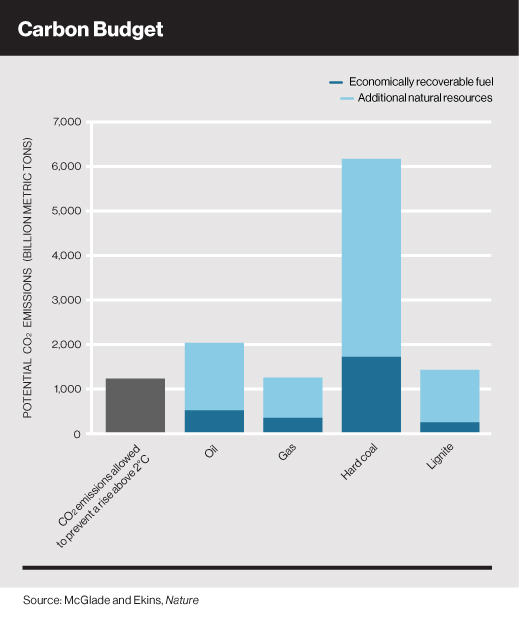How Much Fossil Fuel Should Be Left in the Ground?
The planet still holds vast reserves of fossil fuel that could be extracted economically. However, according to a new analysis, a third of the world’s oil, half of its gas, and 80 percent of its coal reserves must remain unused if we are to have a good chance of avoiding potentially devastating climate change.
The study, authored by researchers at the University College of London, is the first to suggest which specific resources, and where, should be left in the ground. Importantly, it differentiates between the total amount of natural resources left in the ground and the amount of fuel it would be technologically and economically feasible to extract.

Keep Reading
Most Popular
Large language models can do jaw-dropping things. But nobody knows exactly why.
And that's a problem. Figuring it out is one of the biggest scientific puzzles of our time and a crucial step towards controlling more powerful future models.
How scientists traced a mysterious covid case back to six toilets
When wastewater surveillance turns into a hunt for a single infected individual, the ethics get tricky.
The problem with plug-in hybrids? Their drivers.
Plug-in hybrids are often sold as a transition to EVs, but new data from Europe shows we’re still underestimating the emissions they produce.
Stay connected
Get the latest updates from
MIT Technology Review
Discover special offers, top stories, upcoming events, and more.